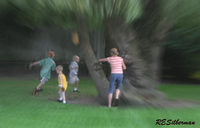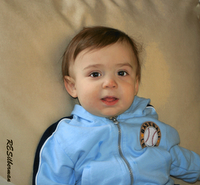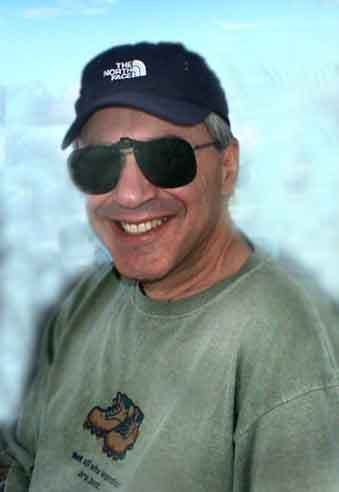Exercise Physiology 101
Lots of us exercise. Some of us are weekend jocks, others are serious athletes. In the stage of life just prior to being a sea kayaker, I was a long distance runner. At the time, Ball State was doing fantastic research that tremendously increased our knowledge of exercise.

Exercise, in my mind, became known as training. Aerobics, the catch word of the times, was really about something called the training effect (aerobics, or with oxygen, is one of the 3 ways skeletal muscle can produce work...but I digress). To many folks, paddlers right there among them, training means doing more and more until a certain level of endurance is achieved. This happens to work for many of them since youth is the single best source of somatic forgiveness. Fact is, many know nothing about training their bodies.
Think of your body as a system capable of burning an energy source and turning out work at a certain rate. Your particular rate is, in essence, your level of conditioning. Now, let's say that you want to increase your level of out put. If you were a factory, you would install more furnaces and order more coal. In order to do this, you would have to add capacity to your plant. Up to a point, this is also true of the body.
Step I, Exercise: Since your "plant" is a living thing, you can't just hire a building contractor to add on a room. Instead, you go out and exercise. You do the skill (jogging, paddling, etc.) you wish to improve, but you do it at a slightly higher level than what your system can easily handle. In other words, exercise is the phase of training during which you challenge (very carefully overload) your system. This can mean going a little faster, a little longer or both.
Now, what many of you do not realize is that by doing this you actually injure the system, but you do so (hopefully) only to the extent that the body can easily heal itself. The big payoff is that, if you have done this phase correctly, the body will heal itself to a level of capacity higher than before the exercise took place. Neat, is it not? But it isn't quite that simple.
Step II, Recovery: In order for the body to recover and improve, it must have rest. Because we are all so different in our capacity to heal (and that ability is different at different ages), the amount and degree of rest needed will vary enormously amongst athletes.

For some (usually the youngest or fittest), all that is needed is to alternate hard and easy days. That could mean running hard for 10 miles and then "resting" the next day with an easy 5 mile run.
For some it will mean taking one and even two days totally off and really giving it a rest.

How can you tell if you are resting enough? There are a couple of ways: 1, if you constantly ache and your time or endurance is getting worse with more effort, you are headed for trouble. Big trouble. Another way is to check your waking pulse rate before getting out of bed. If it is suddenly higher, you are not recovered from what ever it is you were doing and need to either take it easy or take a rest day. You may want to know that most endurance athletes have their best performances after a minor injury has forced them to stay away from training for several days. Finally, you can get a little meter to check your lactate levels after exercise. This will let you know if you are pushing too hard during your sessions. this is something for the student of exercise to consider.
So, what's the worse that can happen? I will tell you. The over training syndrome.
To experience this condition is to feel like a patient with infectious mononucleosis. The only difference will be that your blood test for mono witll be negative. You will be tired, I mean really tired, and unable to do your sport efficiently. You may have swollen lymph nodes. Low level fever is present in severe cases. Your immune system will be weakened subjecting you to more colds.
The treatment for this unfortunate state is rest...up to a year.(Not a typo...a year).
So, if you are working harder than hell, going balls out every day, never taking a rest day, never slowing down and you feel great...don't worry. You will get over it.
Paddle safe...and sensibly
DS








3 comments:
So, this year I'm paddling less than in previous years, but seem to be paddling better, and I feel stronger. Hmmmm. . .could the weight loss (23 pounds now) make that much difference? Perhaps that with the morning ritual of wallowing around on the floor stretching combine to make the difference. Maybe I'm simply more focused this year than I was in the past. Hmmmm. . . .
Sometimes less IS more, especially if fewer good work outs are interspersed with good rest. Look how, after 3 hard days on the water, I was unable to complete the Hand Over Rescue.
Weight loss also helps since a higher percentage of your cardiac output can go to core muscles. It is also like running with weights in training and then putting them down to run the race.
Wait until you"re 35 to see how you really feel :)
"35" ??? is that a typo?
I won't see 35 again in this life at least ;)
Post a Comment